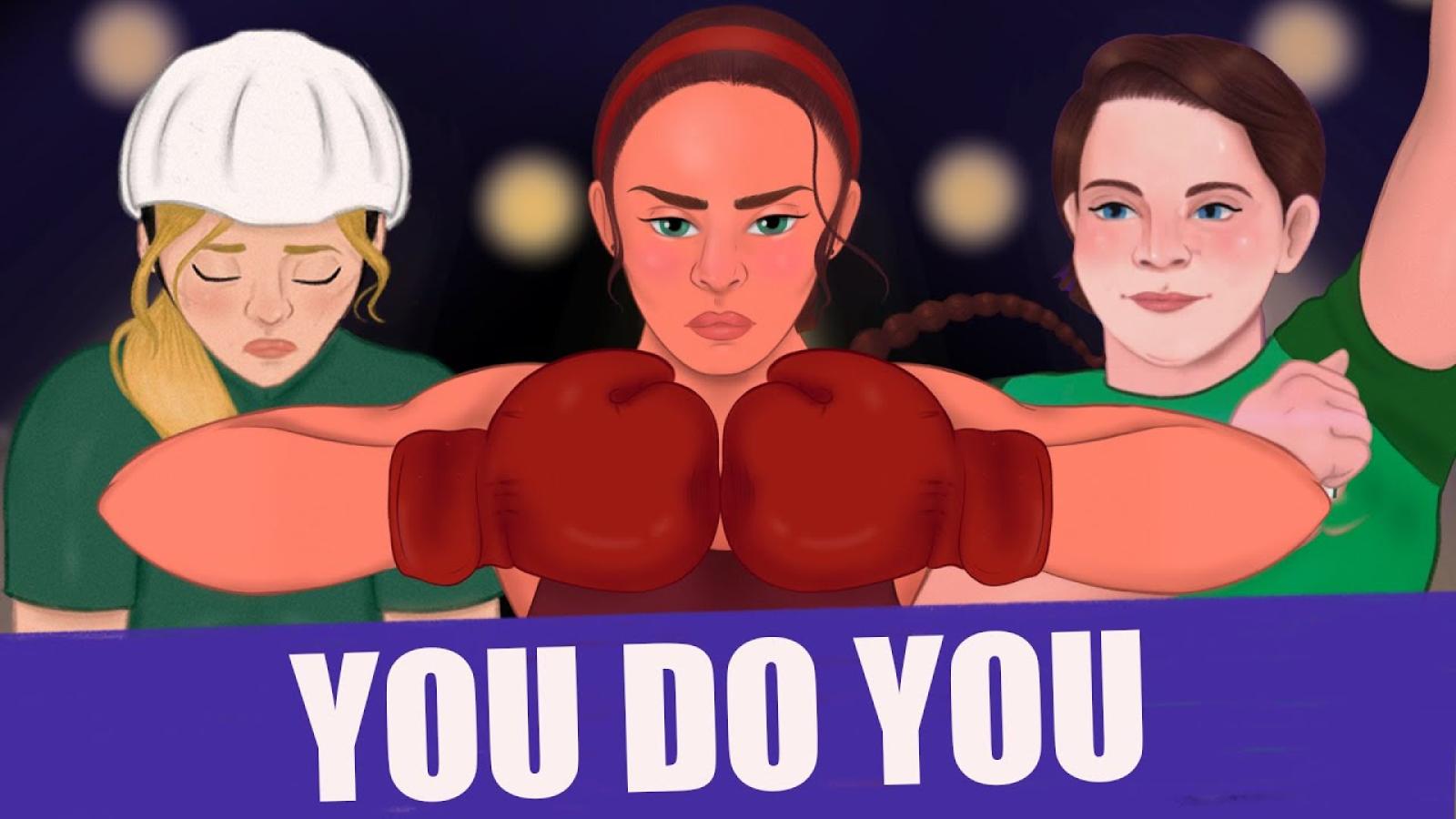Fuel Your Performance
“Body composition is more than just a number, appreciate your body for what it can do, not what it looks like."
Athletes and coaches frequently have misconceptions about how an athlete should look in order to perform, but now Sport Ireland's ‘Body Composition: More than a Number’ video is raising awareness about the importance of appreciating your body for what it can do, not what it looks like.
In the video Olympic boxer Gráinne Walsh, former Ireland’s rugby team captain Ciara Griffin, and track and former Olympic road cyclist Emily Kay share their stories of overcoming stereotypes and navigating the physical and mental challenges on their journey to becoming top performers in their sports.
The video features insights into body composition - the term used to describe the amounts of fat, bone, and muscle in human bodies -
and advice on training, nutrition, mental health, and managing pressure from both others and ourselves.
Body Composition
An athlete’s body shape, weight and composition will change throughout their lifespan due to growth, development, and training adaptations. Despite this, a fixed view of an athlete’s optimal state is often adopted.
Due to the differing physical requirements of various sports, body weight, and composition are important to performance and as such, are commonly discussed by athletes, coaches, and support staff. Many conversations and comments occur about the body weight and composition of athletes, intentionally and unintentionally.
These comments may adversely impact the performance and physical and mental health of athletes. It is therefore important to emphasise to all involved in the high-performance sporting environment the need for individual plans and avoidance of comparisons between athletes.
Sport Ireland Institute acknowledges the complexities surrounding body weight and composition in athletes and recognises the duty of care to safeguard physical and mental health. With this in mind, in 2023 a body composition working group was formed. This consisted of Sport Ireland Institute discipline representatives e.g., physiology, nutrition, medicine, psychology, strength and conditioning, along with representatives from Sport and Exercise Nutrition Group BDA, University of Sao Paulo and Durham University.
The aim was to raise awareness of the complexities of body composition as a performance variable and to develop educational resources to support athletes, coaches, practitioners and the wider sporting community on the complexity of this area.
We have used the experiences of our team along with athlete and coach reflections to develop a series of infographics. These infographics are designed to be downloaded and used by athletes, coaches and sports science service providers at all levels as an educational resource and to start a discussion around weight and body composition.
- Body composition and raising awareness;
- Communication relating to body composition;
- Refocusing away from body composition;
- & 5. Outline of implications when focusing too much on body composition (female (4) and male (5)).
These have also been published in British Journal of Sports Medicine (BJSM) (https://blogs.bmj.com/bjsm/2024/05/06/body-composition-more-than-just-a-number/) so that they can be used in the wider sporting environment.
Helplines
Could you be focusing too much on weight and body composition? If so, it may be time to speak to a health professional. If you are concerned about your weight or body composition, or have any other medical issue always speak to a qualified health practitioner.
Useful contacts are provided below:
BodyWHYS: The Eating Disorders Association of Ireland
Website: www.bodywhys.ie
Helpline: 01-2107906
Email support: alex@bodywhys.ie
Reliable Nutritional Contacts:
1. SENG - Sport & Exercise Nutrition Group of the Irish Nutrition & Dietetic Institute (INDI)
Access to a list of registered performance nutritionists and sports dietitians in Ireland who are members of SENG
Contact details:
sportsandexercisenutritionindi@gmail.com
2. British Dietetic Association (BDA) Sports Nutrition Specialist Group
Access to a group of registered dietitians and nutritionists who work/have an interest in sport in the UK and Ireland
Contact details: https://www.bda.uk.com/senr-sport-and-exercise-nutrition-register/senr-…
RED-S
Relative energy deficiency in sport (RED-S) is a condition of low energy availability affecting male and female athletes of all levels and ages.
The infographics below were developed by a multi-disciplinary team at Sport Ireland Institute including Physiotherapy, Medicine, Nutrition and Performance Psychology to aid the education and discussion of RED-s. The resource has been shared among National Governing Bodies of Sport and has been utilised as part of education discussions for high-performance athletes and coaches.
The infographics provide information on Relative Energy Deficiency in Sport (RED-s), the common signs and symptoms of RED-s, the importance of balancing your training, nutrition and recovery strategies, some thoughts process that may occur relating to RED-s and the hormonal implications of RED-s.
They are designed to be downloaded and used by athletes and coaches at all levels as an educational resource and to start a discussion around RED-s.
If you are concerned about RED-s or have any other medical issue always speak to a qualified medical practitioner.
